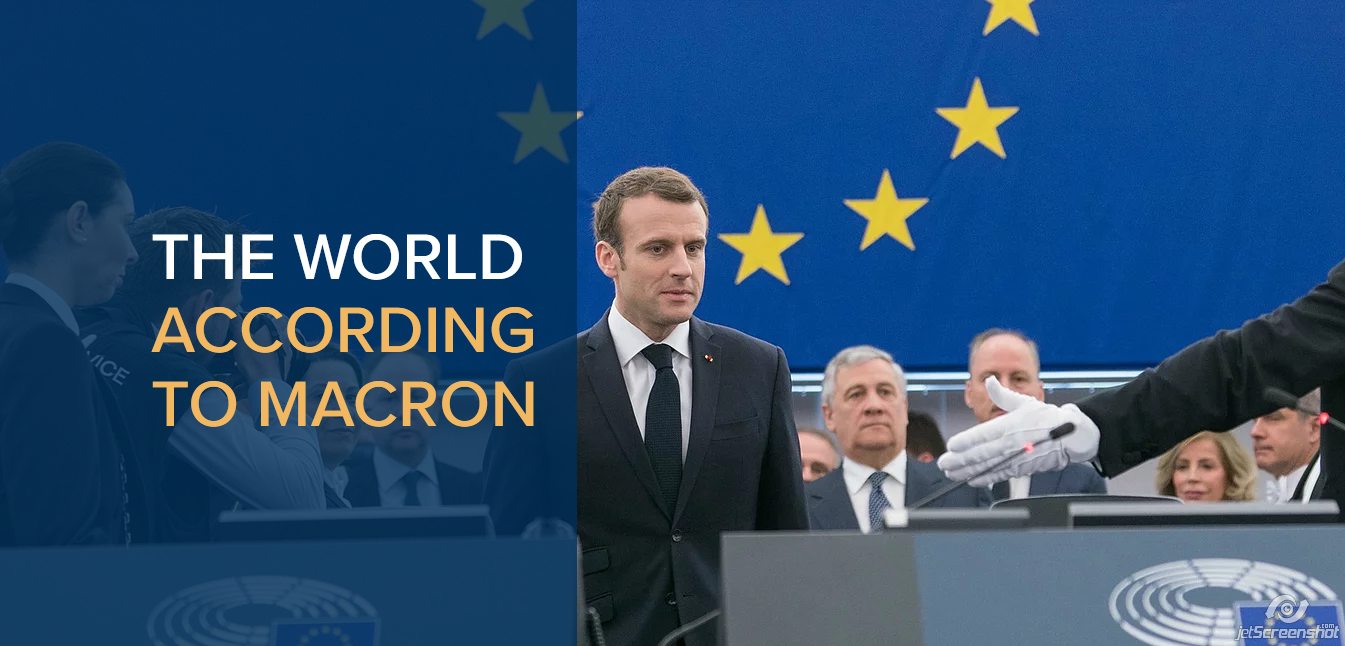
By Edward Lucas, for CEPA
Is Global France Compatible With the Atlantic World?
Atlanticists have complained for decades that the European end of the Alliance is timid in its actions and parochial in its outlook. After Emanuel Macron’s explosive interview with the Economist, those complaints need rethinking. The French president’s ambition and vision cannot be gainsaid. He spoke in sweeping terms of the “brain death” of NATO, called for a “rapprochement” with Russia, and demanded the European Union’s “aggiornamento” – an Italian word roughly meaning “update.” His vision is of a French-led Europe, operating on a grand scale in world affairs. (Any comparison with Napoleon would be hotly rejected: France will lead by force of ideas, not force of arms.)
Some blunt speaking is overdue. NATO approaches its upcoming summit with trepidation, not at the potential behavior of its foes, but of its friends. Turkey’s flirtation with Russia is one headache. Donald Trump’s approach to U.S. allies is another. The American president’s casual abandonment of the Kurdish militias in northern Syria strikes a chill into the hearts of other allies. The Alliance is in great shape—but only so long as it is not tested. Europe is failing to meet the challenge posed by China. It could indeed, as Macron puts it, lose control of its destiny.
His mistake is not in his analysis, but in his solutions. If NATO is rickety, the job is to shore it up, not to attack it. The French-led European Intervention Initiative is no substitute. True, it has gained the support of both Finland (not in NATO) and Estonia (an über-loyal NATO member). But it lacks most of the features—starting with firepower, intelligence, and logistics—needed to be a serious fighting force. In the event of a serious confrontation with Russia, Europe needs the United States to mount any credible defense. Changing that will require time, money, and political will, not just some grandiloquent pronouncements in the Elysée Palace.
Similarly, nobody would dispute Macron’s depiction of Russia’s limited strategic options: too weak to go it alone; unwilling to be a junior partner to China; and doomed, therefore, to get along with Europe. But what kind of Europe? The Kremlin has played a successful divide-and-rule game, most recently in reducing support of Magnitsky sanctions, some would argue, in Hungary and Italy, and in inducing Germany to build the second Nord Stream gas pipeline across the Baltic Sea. It launches effective propaganda campaigns and cyber-attacks—not least on Macron’s own presidential election campaign. It keeps the war in Ukraine going. These are not isolated tactics: they are part of a strategy, aimed at breaking European solidarity and creating a new kind of Europe where Russia uses its weight in bilateral deals. Macron ignores this.
The French leader can be criticized for his choice of words. But it is his deeds that really matter.
NATO has a long to-do list, on everything from military mobility (moving troops and equipment across the continent’s bottle-necked infrastructure) to improving interoperability. On some of this, tighter European defense cooperation—a big priority for Macron—could bring real benefits. Such topics have been much talked about for years. Results are scant.
Europe is indeed short of leadership. Italy, Germany, Spain, Poland, and Britain are all, for different reasons, hitting new low points in terms of their political influence. The new European Commission has yet to get going. The United States, which under previous administrations would have politely, or not so politely, reminded the French leader of his position in the greater scheme of things, is also consumed with its internal woes. Macron cannot be criticized for enjoying the limelight. But showmanship is no substitute for statecraft.
By Edward Lucas, for CEPA
Europe’s Edge is an online journal covering crucial topics in the transatlantic policy debate. All opinions are those of the author and do not necessarily represent the position or views of the institutions they represent or the Center for European Policy Analysis.




